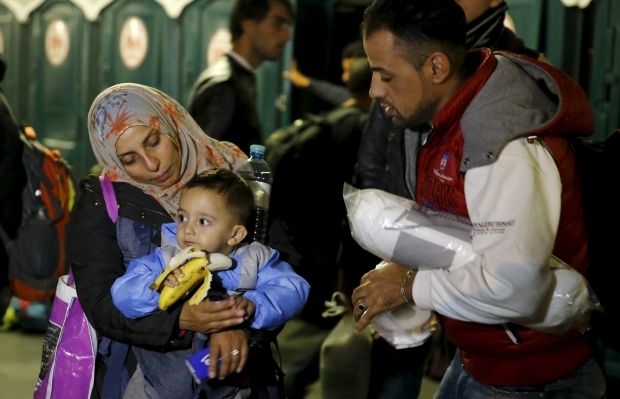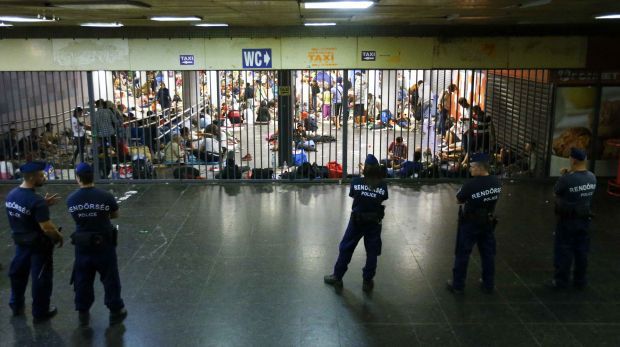
"Germany’s decision to re-establish national border controls on its southern frontier with Austria deals a telling blow to two decades of open travel in the 26-nation bloc known as the Schengen area," Ian Traynor, The Guardian's Europe editor wrote in an article published on September 13.
"The abrupt move to suspend Schengen arrangements along the 500-mile border with Austria will shock the rest of the EU and may spur it towards a more coherent strategy to deal with its migration crisis. Yet there will be little sympathy for Berlin from Hungary, Italy or Greece, which are bearing the brunt of the mass arrivals of people from Syria, Iraq, Eritrea and Afghanistan," reads the article.
Deep splits have emerged across Europe regarding Brussels’ campaign, backed by Berlin, to establish a new compulsory quota system to distribute asylum seekers across the EU on a more equitable basis.

"Thomas de Maiziere, the German interior minister, announced that while Austria was the focus of the new border controls, all of Germany’s borders would be affected. As the EU’s biggest country straddling the union’s geographical centre,Germany is the lynchpin of the Schengen system. It borders nine countries. Without Germany’s participation, Schengen faces collapse," according to the article.
Read alsoMigrant crisis: Juncker announces refugee quota planBerlin has earlier announced that given the concentration of refugees in Hungary it was waiving European rules known as the Dublin regulations, which stipulate that people must be registered and lodge their asylum applications in the first EU country they enter. "The decision prompted a sudden surge into German of Syrians looking for safe haven. It elicited huge praise for Germany’s humane approach, but ultimately it has proven unmanageable. Sunday’s decision to suspend the open borders reverses that move," the author believes.

"It will create a backlog of people in Austria and Hungary, with the latter also introducing a stiff new closed-borders regime, effectively criminalising most new arrivals as illegal migrants," reads the article.
"The German decision to erect border controls may frighten the east Europeans into concessions, given that Schengen membership is one of the most highly prized aspects of EU membership for the former Soviet bloc countries, whose travel rights were severely restricted until 1989," Ian Traynor wrote.
Read alsoHungary holds military exercise near Serbia to protect borderEven the Hungarian prime minister, Viktor Orban, the most outspoken opponent of liberal immigration policies in the EU, has said that “for Hungarians, Schengen is freedom.”

"The system, however, is under strain as never before. About 63,000 asylum seekers have entered Bavaria from Hungary and Austria this month, more than the total for all of last year. More than 12,000 arrived on Saturday and thousands more on Sunday. De Maiziere said the border controls would stop people entering Germany without valid travel documents, putting the onus on transit countries to process them more consistently and piling the pressure on other EU countries before Monday’s meeting," the article reads.
Read alsoHungary calls for aid to Syria's neighbors“Germany is facing up to its responsibilities, but the burden has to be spread in solidarity,” he said.

